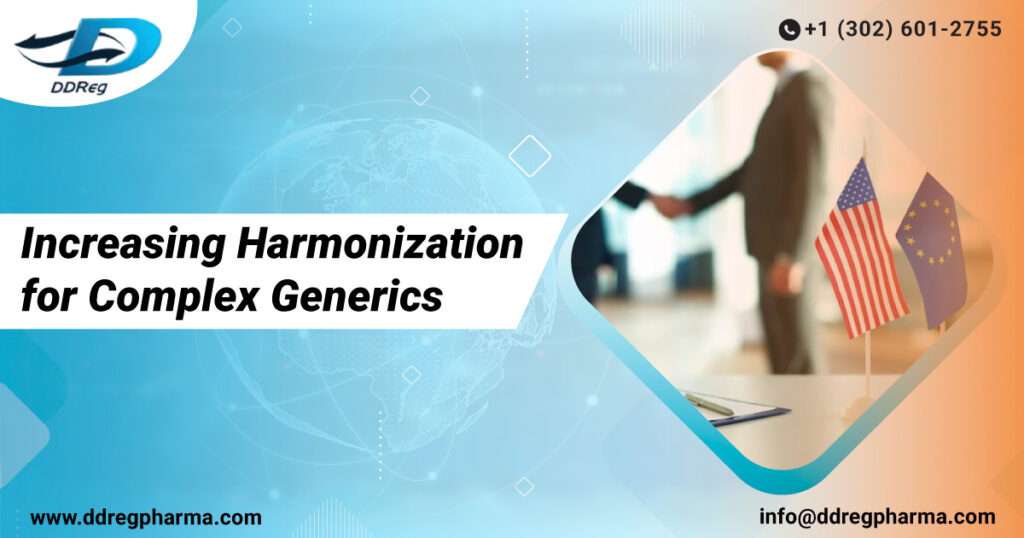Regulatory agencies across the globe are increasing their efforts in advancing the development of complex generics to facilitate patient and/or consumer access to safe, efficacious, and high-quality generic medicines. The generic medicine industry is already associated with many challenges such as declining profit margins and pricing making it a less attractive industry for generic pharmaceutical companies to continue their operations in. On the other hand, the market opportunities for complex generics may offer potentially higher profit margins… but the challenge for manufacturers here are associated with the development of the complex generics for reasons like gaps in expertise, methodologies, and/or evidence that would support the development of complex generics.
Given the large amount of investment that goes into the research and development of complex generic products, it is important for manufacturers to proactively engage with regulatory agencies, as early as possible during the drug development pipeline. Not only does this contribute to improving the quality of the development plan but it also helps to stay ahead of regulatory hurdles that could be an issue later on.
The Parallel Scientific Advice Program of the FDA & EMA
The United States Food and Drug Administration (US FDA) and European Medicines Agency (EMA) collaborated to develop the Parallel Scientific Advice (PSA) Program with the intent to streamline information sharing and regulatory perspectives, which allows generic drug applicants to communicate and engage with the US FDA and EMA during generic drug development stages. More recently, the FDA’s Office of Generic Drugs (OGD) and EMA launched a pilot program under which generic drug applicants can request for joint meetings to address any queries they may have which are related to complex generic drug development.
This meeting supports generic drug applicants as it enables them to receive feedback simultaneously from the US FDA and EMA to facilitate complex generic approval in both regions. It also aligns the US FDA and EMA’s thinking on certain applications for complex generics with respect to scientific perspective and addresses differences in how the agencies review these applications.
Applicants for complex generics can utilize the PSA pilot program to help them identify criteria and requirements for developing study designs that would be accepted by both agencies. This also includes recommendations surrounding comparative non-clinical and comparative clinical studies that involve innovative bioequivalence study designs and methodologies.
Impact of the PSA Pilot Program
According to the US FDA, 2 applicants have completed the PSA process and have recommended that the US FDA and EMA should provide clarifications on procedures involved, program timelines & expectations while also sharing the “best practices” for developing PSA meeting packages. The two agencies do intend to implement these suggestions in order to improve the PSA procedure. However, potential applicants are hesitant in joining the PSA program as they are concerned about the possibility of advice from both agencies being in conflict thereby requiring additional testing. Another concern that potential applicants have is lack of “enforceable” commitment from the US FDA and EMA which could hold back the impact of PSA advice. Also potential applications are concerned about disclosing confidential information which may affect the competitive market advantage that they would have. However, the applicants that have completed the PSA process did not experience these concerns as there are measures in place which protect information confidentiality.
Conclusion
The pilot program provides a unique platform that facilitates harmonization and collaboration on a global scale. This demonstrates long-term potential for applicants and regulators. Applicants for the pilot program have a better understanding with respect to the differences in procedures, and the US FDA & EMA expectations for these meetings. The program has helped integrated relevant scientific data that tackles certain challenges which does not require applicants to conduct additional testing.
DDReg brings over 15 years of experience with stringent regulatory agencies like the US FDA and EMA, and has working to gain approval for a variety of complex generics. As part of its regulatory consulting portfolio, DDReg supports the development of meeting packages with those similar to the PSA program & other meetings with the US FDA or EMA. Read more from its experts: Reforming ANDA Suitability Petitions.

